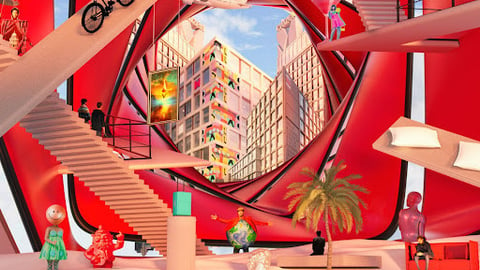Not All Hotels Are the Right Fit for the Metaverse
In 1992, science-fiction author Neal Stephenson coined the term “Metaverse” in his novel “Snow Crash.” In his novel, Stephenson writes about a hacker named Hiro that goes back and forth between a dystopian Los Angeles and a virtual world called the Metaverse as an escape from his dystopian reality. However, actions in the Metaverse have real world consequences. For example, the plot revolves around Hiro trying to stop a computer virus that causes Metaverse users to suffer real-world brain damage. Fast forward to 2021 and Facebook made waves when it announced it would be rebranding to Meta and looking to push the boundaries of the real world and virtual reality. Less than a year later, and not only are consumers eagerly exploring a wide variety of Metaverses, but entire industries are beginning to see the potential these virtual worlds could have in creating loyalty and driving revenue.
One individual who is interested in helping companies better understand the Metaverse and the power it wields, is futurist and OUTFORM founder Ariel Haroush. Haroush primarily works with retailers and teaches them how they can unify their online and in-store experience as well as the fast-approaching future of shopping in VR and the Metaverse. But he has many thoughts on how hotel CTOs can use the Metaverse to create an interactive and engaging customer experience for their guests as well.
HT: What lessons can hotels learn from retailers who are operating in the Metaverse?
Haroush: The retail industry is one of the first industries to utilize emerging technology, such as augmented reality, virtual reality and now the Metaverse. Brands and retailers have launched products, created online stores, and events all within a virtual space.
This innovation has shown us that no business is immune from disruption, even those that have been around for ages. Hotels can use this platform to introduce potential customers to their brand and create early connections with the next generation of customers.
Hotel chains should be the first to hit the virtual world, if they wait for someone else to do it, they’ll be too late.
HT: Why should hotel CTOs investigate purchasing property in the Metaverse and creating a space there for virtual consumers?
Haroush: When you think about the future of travel, it's hard not to picture a world where the Metaverse is as ubiquitous as smartphones are today.
The Metaverse is currently in its infancy, like the internet before the “.com age.” Hotel CTO’s need to be prudent about which Metaverse project has the most viability and overlap with their core shopper demographic and the ability to become one of the big players once the concept matures.
The concept of a hotel having a digital offering makes complete sense, by investing in Metaverse property now, hotels can ensure their brands are present in the space when consumers start using it regularly.
HT: Should all hotel brands enter the Metaverse?
Haroush: In truth, no, not every single chain should go into the Metaverse. All brands need to figure out what makes sense for them, where do their users want to go, and what experiences they are looking for. It’s not different to real-life experiences, hotel chains known for their unique environments, experiences, and events make complete sense, for the other brands it does not.
HT: If a hotel CTO wants to begin exploring the Metaverse and its implications for their brand, where should they start?
Haroush: Start exploring and understanding what Metaverse projects are out there. Remember, there is not just a single Metaverse right now, but multiple projects. Look at relevant Metaverse projects with the most maturity, and users; look at the technology behind it and their capabilities. You should find out what other well-known brands are doing in this space and how they are changing the landscape through innovation.
As an example, sports manufacturing brand Nike is using the Metaverse, Web3, and NFTs to draw and engage audiences around the globe. Through their launch of Nikeland, more than 7 million visitors have spent time in their online space since its start. While there, the platform has created virtual events where avatars can meet their favorite athlete and buy exclusive products and clothing their online twin can wear. However, none of this would be possible without the company's ability to research and deliberate what makes sense with their brand.
HT: What is one piece of advice you'd give to a hotel executive or hotel brand that is looking to explore the implications of the Metaverse for its brand and customer base?
Haroush: One piece of advice I have for all of these interested in the Metaverse is to tread carefully. It's important to understand the space and be aware of what other brands are doing. It's also important to choose wisely and be deliberate; innovating and being ahead of curve is extremely critical and is a huge opportunity. However, getting stuck in something you don’t understand can also be a factor.




